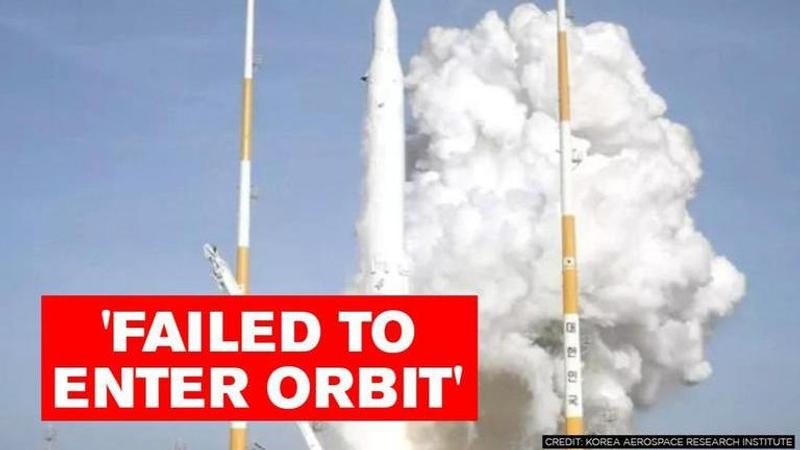Published 18:38 IST, August 25th 2020
South Korea launched first-ever rocket KSLV-1 into space on this day in 2009
Scientists declared in 2009 August 25 launch at South Korea’s southern coast, 350 km (220 miles) from Seoul that the rocket was unable to hit target orbit.

On this day in history, August 25, 2009, South Korea launched its first-ever space rocket Vehicle-1 (KSLV-1) known as NARO in accomplishment against rival North Korea under its nascent space program. The rocket launched from its launch pad at the Naro Space Centre in Goheung, however, was unsuccessful to enter its target orbit as the payload separated from second-stage booster 8 minutes into the airlift, according to reports.
[The first attempt to launch Naro-1 was conducted on 19 August 2009, but the launch was canceled seven minutes 56 seconds before launch. The second attempt on 25 August 2009 succeeded in taking off from the Naro Space Center. Credit: Dan Beaumont Space Museum]
In a press conference at the space center located in South Korea’s southern coast, 350 km (220 miles) from Seoul, the scientists said that while the first stage engine and the second-stage motor engine operated well, in an unforeseen event the satellite separated and did not make it to the target orbit. The 33 metres (108 feet) tall and 3.9 metres (12.8 feet) Science and Technology Satellite-2A (STSAT-2A), whose first stage was developed by the Khrunichev State Research and Production Space Center, Russia, and second stage by Korea Aerospace Research Institute, failed to separate accurately and had fuel shortage to overcome additional weight. However, as per the reports, South Korea made a second launch attempt of KSLV-1carrying STSAT-2B on June 10, 2010. That time, only 2 minutes into the airlift, the vehicle unfortunately exploded. South Korea could successfully launch STSAT-2C, on January 30, 2013, in the third attempt.
Science Minister Ahn Byong-man called the project 'partial success' and could not find the cause of the launch mission’s failure. Officials blamed the insufficient booster mechanism that hampered the rocket’s trajectory.
At 4:00 p.m. on January 30, 2013, the KSLV-I space launch vehicle, carrying the Naro scientific satellite (STSAT-2C), finally flew into space with a brilliant flame, after three consecutive attempts, Korea Aerospace Research Institute said in a press release.
Beacon signal for 10 minutes
At 231 seconds, the rocket’s 1st and 2nd stage separated as planned, and the satellite was inserted into its target orbit (300km perigee, 1,500km apogee) at 5:26 pm. The ground station received the beacon signal from the satellite for over 10 minutes indicating its success. “The first contact was made with the ground station of the Satellite Technology Research Center at KAIST in Daejeon during a 14-minute satellite pass over the Korean peninsula at 3:28 a.m. confirming that the satellite was operating normally,” Korea Aerospace Research Institute confirmed in the release.
[Testing Stage 1 of KSLV -1 launcher at Khrunichev. Credit: Khrunichev State Research and Production Space Center]
[Rollout to launch pad of KSLV -1 launcher at Khrunichev. Credit: Khrunichev State Research and Production Space Center]
[The KSLV's first launch in August 2009 fell short of orbit. Credit: KARI]
[The South Korean KSLV-1 rocket sits on the launch pad during ground tests before its first launch in 2009. Credit: KARI]
Updated 18:38 IST, August 25th 2020







